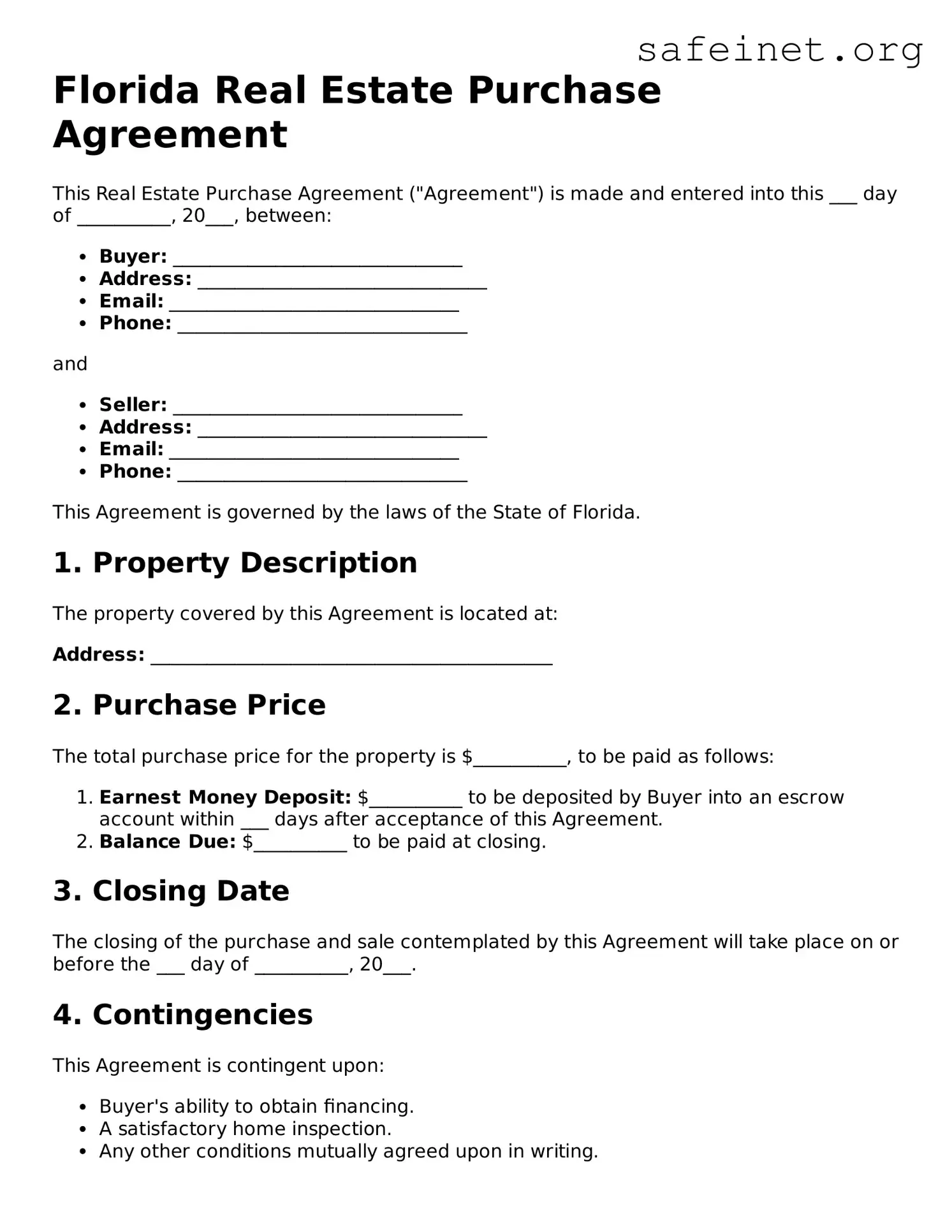Florida Real Estate Purchase Agreement
This Real Estate Purchase Agreement ("Agreement") is made and entered into this ___ day of __________, 20___, between:
- Buyer: _______________________________
- Address: _______________________________
- Email: _______________________________
- Phone: _______________________________
and
- Seller: _______________________________
- Address: _______________________________
- Email: _______________________________
- Phone: _______________________________
This Agreement is governed by the laws of the State of Florida.
1. Property Description
The property covered by this Agreement is located at:
Address: ___________________________________________
2. Purchase Price
The total purchase price for the property is $__________, to be paid as follows:
- Earnest Money Deposit: $__________ to be deposited by Buyer into an escrow account within ___ days after acceptance of this Agreement.
- Balance Due: $__________ to be paid at closing.
3. Closing Date
The closing of the purchase and sale contemplated by this Agreement will take place on or before the ___ day of __________, 20___.
4. Contingencies
This Agreement is contingent upon:
- Buyer's ability to obtain financing.
- A satisfactory home inspection.
- Any other conditions mutually agreed upon in writing.
5. Title and Possession
The Seller agrees to convey clear title to the property. Possession will be given to the Buyer at closing.
6. Governing Law
This Agreement shall be construed in accordance with the laws of the State of Florida.
7. Signatures
IN WITNESS WHEREOF, the parties hereto have executed this Agreement as of the date first above written.
_______________________________ _______________________________
Buyer (Signature) Seller (Signature)
_______________________________ _______________________________
Print Name Print Name
Date: _____________________________ Date: _____________________________
